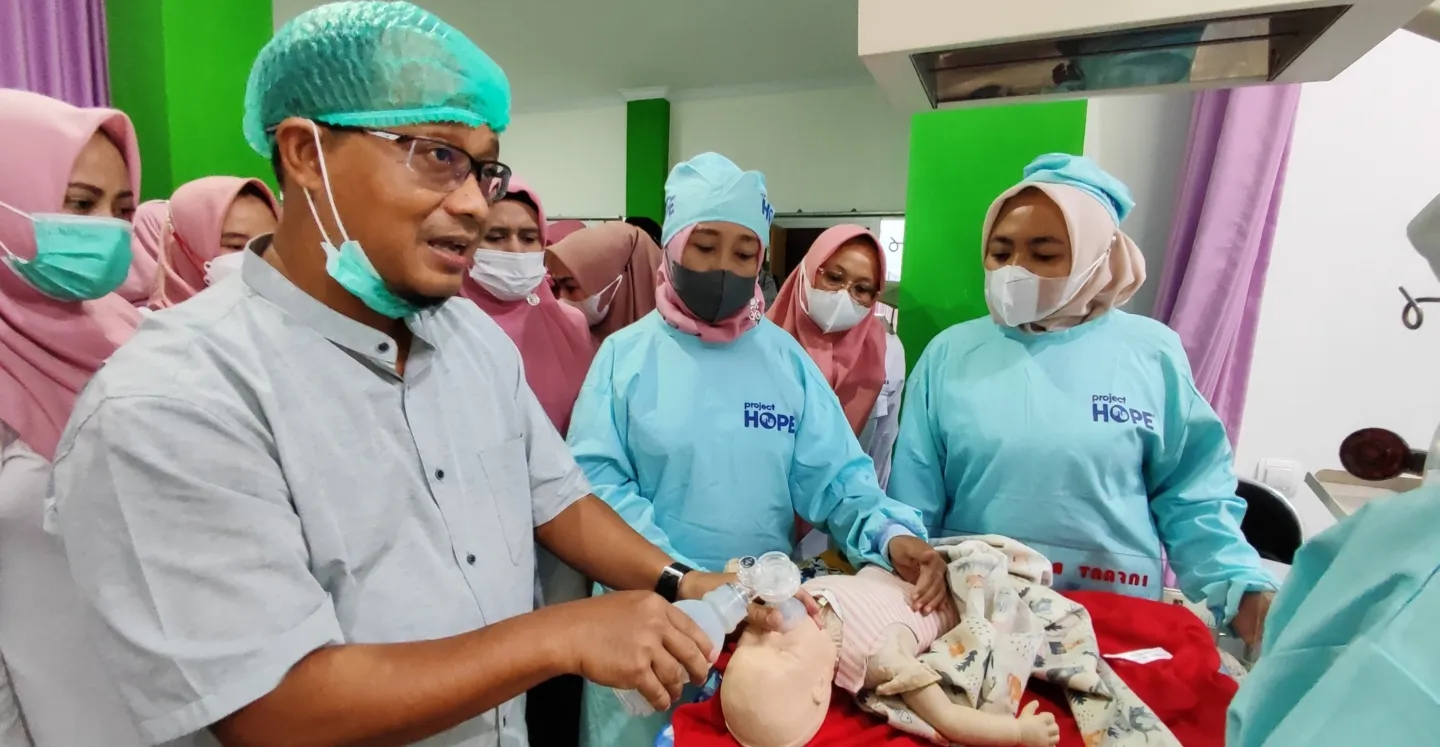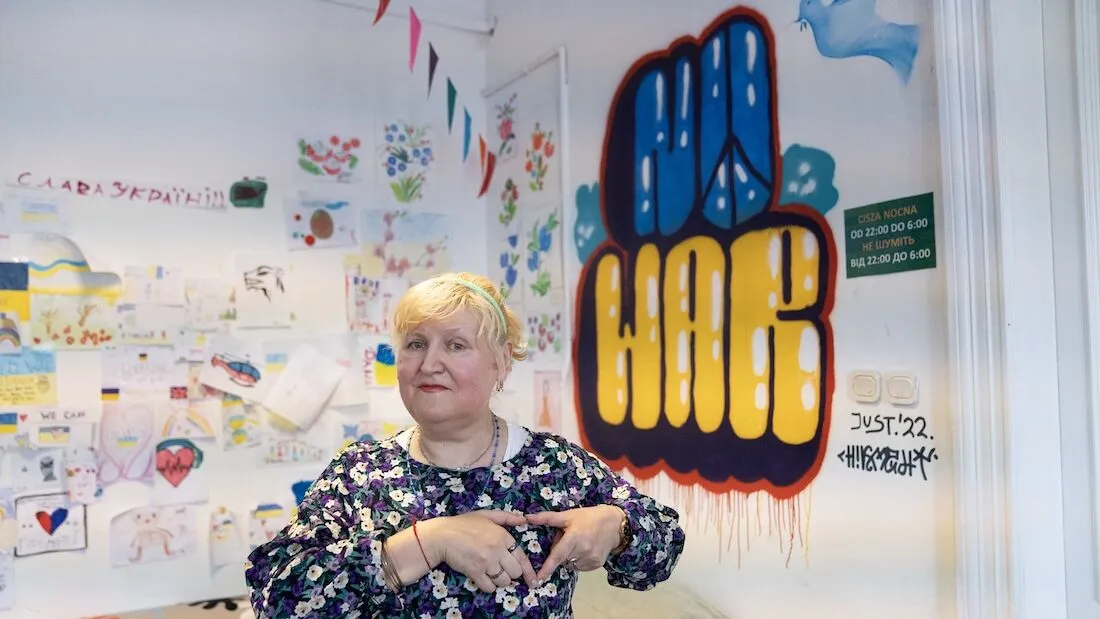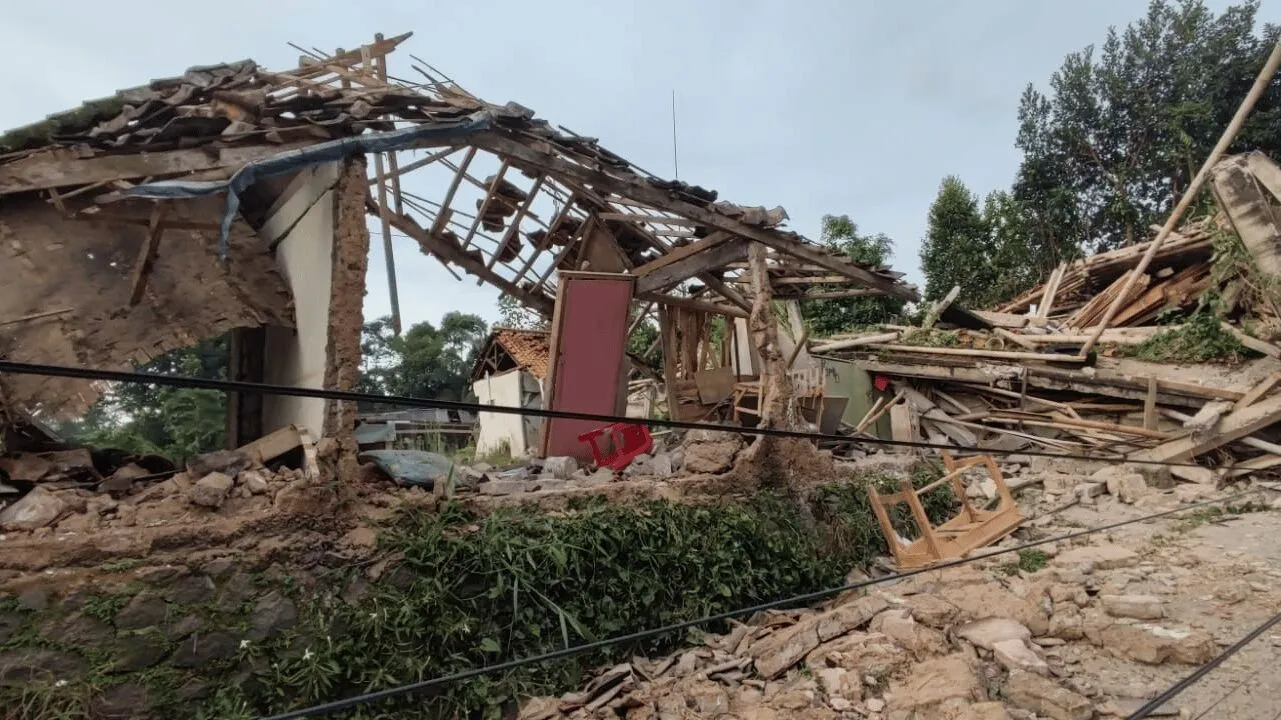

Indonesia
Improving access to quality health services by strengthening the capacity of local health workers and providing humanitarian assistance in the wake of disasters
The Context
Indonesia has made significant progress in improving public health indicators over the past three decades, but challenges remain. Indonesia’s health system suffers from a shortage of qualified health workers and inequitable health care access.
Indonesia is home to some of the highest maternal and neonatal death rates in Southeast Asia, with two mothers and eight newborns dying every hour from primarily preventable causes.
Indonesia also has the second-highest tuberculosis (TB) rate in the world with around a million new cases and over 100,000 TB-related deaths each year.
Our Impact
Reducing Maternal and Neonatal Mortality
Since 2013, Project HOPE has implemented the Saving Lives at Births (SLAB) program to reduce maternal and neonatal mortality by supporting local health systems. Through SLAB, we train and equip health workers to deliver quality antenatal, postnatal, and emergency care to high-risk mothers and newborns, as well as providing follow-up coaching with health providers to ensure skill retention. Similarly, our Saving Neonates at Risk program equips midwives and doctors with the skills and equipment to detect potential birth defects during pregnancy and to screen newborn babies for congenital hypothyroidism, while supporting mothers and families with psychological first aid.
Combatting Tuberculosis
Project HOPE co-leads a USAID-funded consortium in developing a strategic health communication campaign to improve the coverage and outcomes of TB preventative treatment (TPT). The program leverages high-level political and faith-based support to improve reporting, encourage the practice of safe and preventive health behaviors, and mitigate stigma.
Additionally, as part of a regional effort to integrate TB and mental health care, Project HOPE has developed a collaborative care model to provide mental health support for people receiving TB treatment that includes screening tools for depression, anxiety, and alcoholism; evidence-based mental health interventions; monitoring and evaluation; and research.
Infection and Prevention Control
Project HOPE works with local health facilities to strengthen preparedness and response to COVID-19 and other infectious threats by strengthening Infection Prevention Controls (IPC). This includes conducting assessments at health facilities, providing comprehensive training for frontline health workers, and capacity strengthening to monitor and manage IPC and address caps in care.
Mental Health and Psychosocial Support
Project HOPE’s Mental Health and Psychosocial Support (MHPSS) program equips health workers with the training and skills to deliver quality MHPSS and self-help support for mothers and newborns, while promoting mental health resilience programs for women and families.
Our History in Indonesia
Project HOPE’s history in Indonesia dates back to the S.S. HOPE’s maiden voyage in 1960 when volunteers provided medical services and training. Over the past two decades, Project HOPE has worked across all regions of Indonesia to strengthen the health system, improve health worker capabilities, and save lives.
Project HOPE has a long history of humanitarian response in the country, including the 2004 Indian Ocean tsunami, 2018 Central and West Sulawesi earthquake, 2021 East Nusa Tenggara flash flood, 2021 Semeru volcano eruption, and the 2022 Cianjur earthquake.
In 2018, Project HOPE worked to reduce asthma-related morbidity and mortality in partnership with the Indonesian Ministry of Health by training health workers, strengthening health facilities, and educating patients and families on early detection and treatment. Project HOPE then started the TB STRIDES program to improve the detection and diagnosis of multidrug- or rifampicin-resistant TB.
In 2020, we established a regional disaster and emergency response hub in Indonesia to improve our preparedness. During the COVID-19 pandemic, Project HOPE distributed personal protective equipment (PPE) and critical medical equipment to hospitals and health facilities, in addition to providing health workers with mental health and resiliency trainings.




